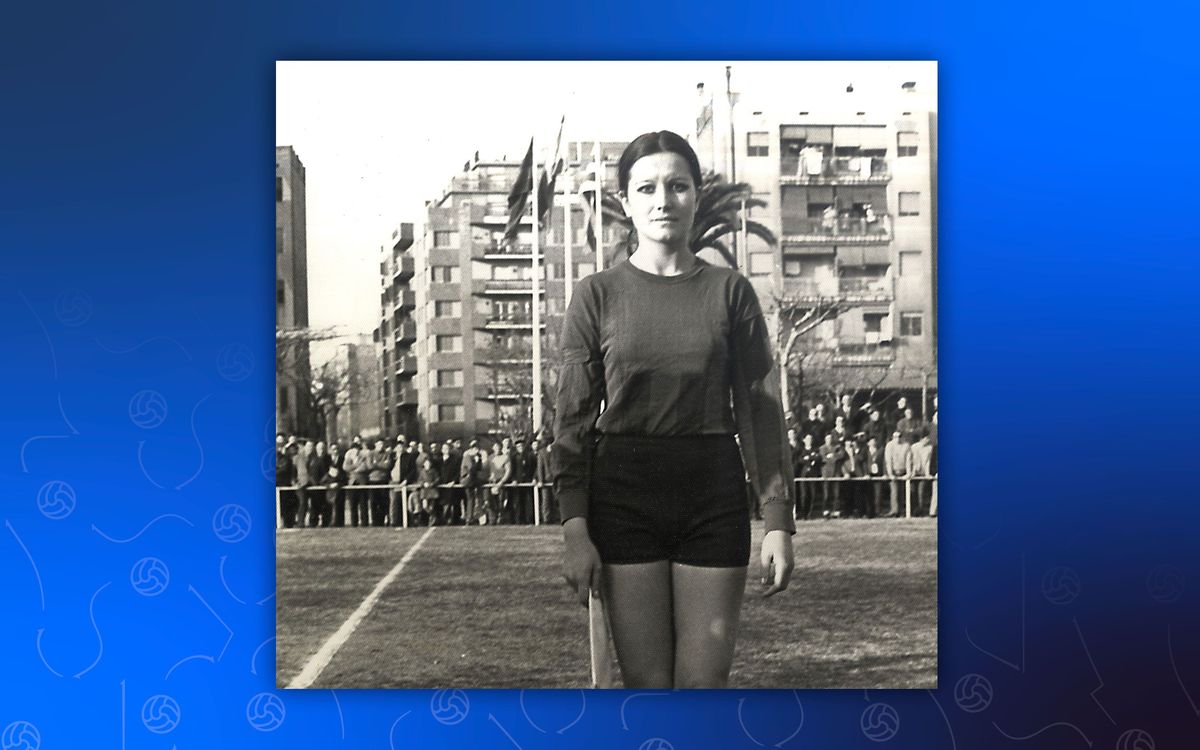Immaculada Cabecerán
Barça Women founder Inmaculada Cabecerán (Barcelona 1952 – Girona 2018) had to heroically fight against the prevailing male chauvinism at the time so women could play football
Club
Tickets & Museum


In autumn 1970, Inmaculada Lala Cabecerán was a young blaugrana fan aged 18 years old. Inmaculada had FC Barcelona in her blood since she was little when her father took her to the Camp Nou, just like he had done with her sister, and she fell in love with a sport that women weren't allowed to play at the time. Lala played football on the street with her younger brother, which cemented her desire to become a Barça player. On finding out that there were women's teams in England, in Italy, and in other countries, she thought her club should also have one.
So, one November morning in 1970, Imma met with Agustí Montal at the Club's offices. During the meeting, the blaugrana president promised that if Imma found enough women to form a football team, Barça would embrace and support them. As such, Cabecerán published an advert in the 17 November 1970 edition of Revista Barcelonista asking for ladies to form an FC Barcelona women's football team. This call to action managed to create a squad of sixteen brave pioneers.
Their debut came on Christmas day at Camp Nou itself. UE Centelles were the opponents and the game was part of a charity festival traditionally held at the blaugrana home during that period. The game ended 0-0, but the new Barça Women team (initially known as “Selecció Ciutat de Barcelona”) won on penalties 4-3. Inmaculada played as a false nine and played a key role by scoring two penalties. A historic day and a significant memory for every one of those pioneers even though it was marred by the attitude and comments from some of the crowd, who simply couldn't understand that women had just as much of a right to play football as men.
Inmaculada Cabecerán unfortunately had a very short football career, as she hung up her boots as soon as June 1971. Family came first, but she did so after having to deal with what was still to come at different grounds across Spain.